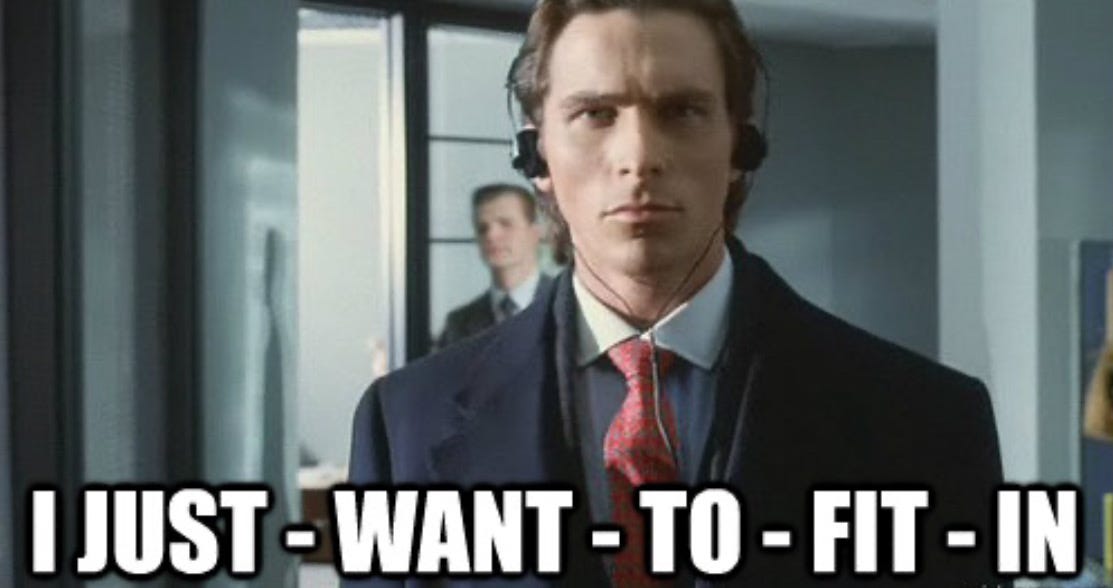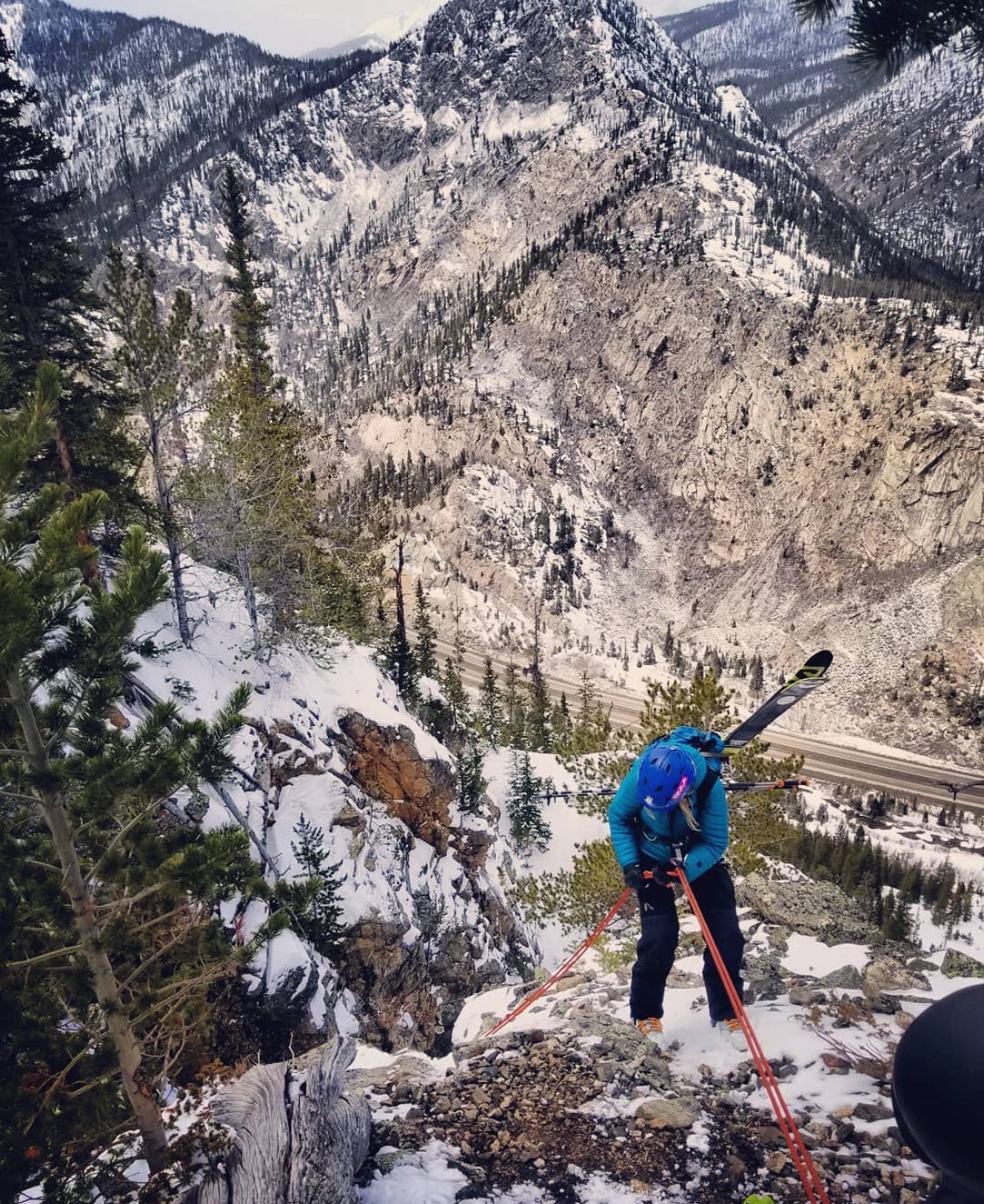Fewer words in the English language are more fraught than the word "fear." Defined in the dictionary as "an unpleasant emotion caused by a belief that someone or something is dangerous, likely to cause pain, or a threat"; and "be afraid of (someone or something) as likely to be dangerous, painful or threatening." On its face, these definitions seem simple and downright reasonable. In some cases they are. Getting kidnapped, living in a war zone, being followed home by a stranger in the dark, being attacked by a wild animal - all things most people reasonably fear as dangerous, and likely or certain to cause pain. The myriad situations and events that objectively should cause humans to feel fear in different degrees of severity would be impossible to adequately cover. This is not up for debate. And most people would agree that things that should and do cause great fear would be best avoided, when possible, and that many scary and dangerous things are fairly easy to avoid.
In nature and in the mountains, however, all of this quite literally goes to shit. Anyone who participates in sports like skiing, rock-climbing, biking (mountain biking, in particular), mountaineering, backcountry anything, or motorized versions of any of these sports can probably wrap their head around the fact that there will be moments of fear. And while it might be easier to avoid the someones that scare us (not in all cases), it is impossible to avoid all of the somethings in the great outdoors that are dangerous and likely to cause pain. A non-exhaustive list of things that can and do kill people in the mountains whether or not they make a mistake is illustrative: cliffs, lightning, mountain lions, bears, avalanches, crevasses, whiteouts, getting lost, floods, rockfall, altitude, cold, heat and exposure. To go play in the woods inherently carries a degree of unpredictability also - one might think they are avoiding danger but even a small unforeseeable event can alter the entire trajectory of a trip and a life.
More often than not, mountain adventures require us to experience fear as an inextricable part of moving forward, physically and metaphorically, towards a specific goal. Sometimes that goal is simply to get to more fun, as it often is with backcountry skiing. Often it is deeper, for example, to see how far the brain and body can push in pursuit of Herculean endurance, as with ultra-running. Often the goal is some kind of transcendence. It is a seemingly inescapable fact of the human condition that achieving goals makes us feel good. Even the absence of having goals is, itself, a goal. For humans, achieving goals is also intrinsically and extrinsically rewarding to differing extents, and there are all kinds of factors that motivate us to set goals that we believe, often mistakenly, assign meaning to our lives and bring us closer to self-worth and self-actualization. It would be impossible to address all, or even many of these goals, but anyone who has goals, I would argue, is seeking reward. For purposes of this column let's just take it as a given that mountain stuff is, for the most part, a good way to seek rewards intrinsically - purpose, health (mental and physical), community, perspective, distraction, connecting with nature. We can also just assume that the extrinsic rewards are also a given - fitting in, opportunity, popularity, money, jobs, notoriety, clout, etc.
The language of mountain culture is often rife with phrases like "owning your fear"; "leaning into fear", "pucker factor"; "fearless". And it doesn't stop there. Mountain popular culture constantly amplifies the ways in which being in the mountains teach us life lessons impossible to find elsewhere: lessons we then do well to apply to all other aspects of our lives. We learn lessons in humility, teamwork, accountability, responsibility. We learn that pain can be good, that intense fear often gives way to euphoria, that suffering silently and being eternally grateful to be able to pick and control our own suffering (and to get strong enough to suffer less) are the most worthy lessons. This is true to a certain extent. But the fallacy lies in our obsession with squashing functional emotions in order to achieve the what (that peak, that line, that mileage), without properly indicting the why (does this serve me anymore, why did I set this goal, is today the day). Instead of "risk versus reward" we have proceeded to "risk is reward." This plays in the mountains well enough: climbing a peak or a route is in itself a goal because simply getting to the top is a challenge and we will be rewarded just by completing it. It gets murkier when we apply this kind of simplification to jobs or relationships. The why'shere become far more important and far less obvious and measurable.
Up until the last job I quietly rage quit, I convinced myself every day for over a decade that it was somehow normal to feel dread begin its incessant gnawing through my guts and my ribcage before work starting at about three months into every job and to then just feel this way almost every day. Even on off days I would dread the end of my weekend and my inevitable return to work. This feeling did ebb and flow, particularly during the middle of my patrol career at Loveland (from 2019 -2024), but it never fully went away. I intellectualized that this was just "my anxiety lying to me" and did what I'd been taught in Colorado - squash it, shut up about it, make up a different name for it. Spoiler alert: anxiety dread is fear is dread is anxiety. Compounding matters for my poor brain was the fact that for eight years as a patroller my job was objectively dangerous, full of hairball days knowing one little mistake could cost a life, or at least a job, for myself or another patroller, while I suffered through physical discomfort of things like frost-nipped toes, torn meniscuses, pinched nerves, chondromalacia, sprains, strains and split skin, remaining firm with myself that pain, often intense, was not a reason to take a break, slow down or even look for a different career. I reasoned that everyone probably carried a little bit of dread, thus so should I, even when it had obliterated almost all the positive things that attracted me to the job in the first place.
Last summer, as I drove to my shitty $20/hour retail job with yet another shitty boss, I almost ran my car off the road when I realized I had the same hive of bees buzzing in my chest as I did while driving to ski patrol. How is that possible? There is literally nothing scary about hanging up cheesy cashmere sweaters, putting overpriced Mother brand jeans on mannequins or pretending to care about whether or not a rich lady thinks her ass looks fat in a size 4 dress. When the dread didn't abate during my last season on patrol, even at only two days a week, and later to my relatively safe job in an emergency room, I had a fireworks show of epiphanies that exploded across my consciousness all at once: I am far more afraid of rejection than objectively scary things like bombs, blood, bones and bodies. The commonalities across all my jobs were that three or four months is usually about how long it takes for the novelty of a new position to wear off and for me to realize that I am not fitting in and am not well liked by my bosses and many, if not most, co-workers. Each year I am passed over for promotions, excluded from all the parties and trips by the co-workers I admire and want to get to know the most, apprised of nasty rumors behind my back, complained about, reprimanded and/or fired, the sense of rejection flares up like arthritis in the gnarled hands of an exhausted carpenter who can't bear the thought of working anymore, but knows she has to because money.
How can someone who is so pain aversive still manage to enjoy getting out in the mountains at a fairly high level? Well, I realized as long as I either perceive I can control the pain, or I know why it's there - as in the case of my many tattoos - I am not that avoidant at all. I imagine many of us are like this, we just don't talk about it. The same goes for fear. If the fear is reasonable and I am choosing to walk into it, I can often keep it from dictating my actions. I also like to prepare and plan, which I am able to do when I am preparing for skiing, hiking, running, climbing or biking. I am aware that there are unknowns, and I choose to accept this. Not so for rejection. I have never been able to plan or prepare for that effectively, or the domino effect of devastation rejection has had on my life and self-worth. In this sense it is completely reasonable that I have learned to fear social rejection more than accidentally blowing myself up with a bomb or severing my spinal cord on a bike. Knock wood. And it makes perfect sense finally why I am far less terrified in moments similar to the photo below, rappelling into a couloir, than I am when I walk into a room and everyone stops talking and stares at me without smiling or saying hello.
The hardest thing I grapple with in the wake of this discovery is that the kool-aid we've all been drinking - about fear, about perseverance, about suffering and worth - is that if I'd listened to my fear anywhere else but on the mountain, I might have escaped much of the self perpetuating cycle I have been mired in for so many years. Had I heeded my dread instead of denying it or trying to stymy it, given myself grace to avoid pain I didn't choose, taken my emotions out to lunch and gotten to know them, perhaps I'd be in a steady job right now, or have avoided the catastrophic separation from my husband, or have found healthier ways to find more authentic joy in a place where joy is easy to come by. Eight years after becoming a patroller and realizing I would never ascend higher than $24/hour (plus tips), I am in an unemployment tailspin it's possible I might have averted had I figured out what my fear's origin story was and what it keeps trying to tell me. Of course I'll never know how things would have been different. But I feel fairly certain that a blind acceptance of fear and pain as the status quo harms very many more people than just me, particularly those of us who by nature of our disorders experience fear and pain far more often and at a much higher level.
The moral of my story is that we would all do well, living in an area of the country called the "Suicide Belt", or any mountain town, to encourage a more thorough examination of fear and pain and the interplay between them in the many different contexts in which we live. Maybe we can develop compassion for people who are profoundly altered by fear and pain, rather than writing them off as weak and less worthy, or balance out the bravado surrounding risk taking in extreme settings with a little bit of common sense and medical science. One of my very favorite co-workers often used to say "if you're not scared, you're stupid," a mantra if ever I've had one, only now I would add: "Don't let being scared make you stupid




❤️✅